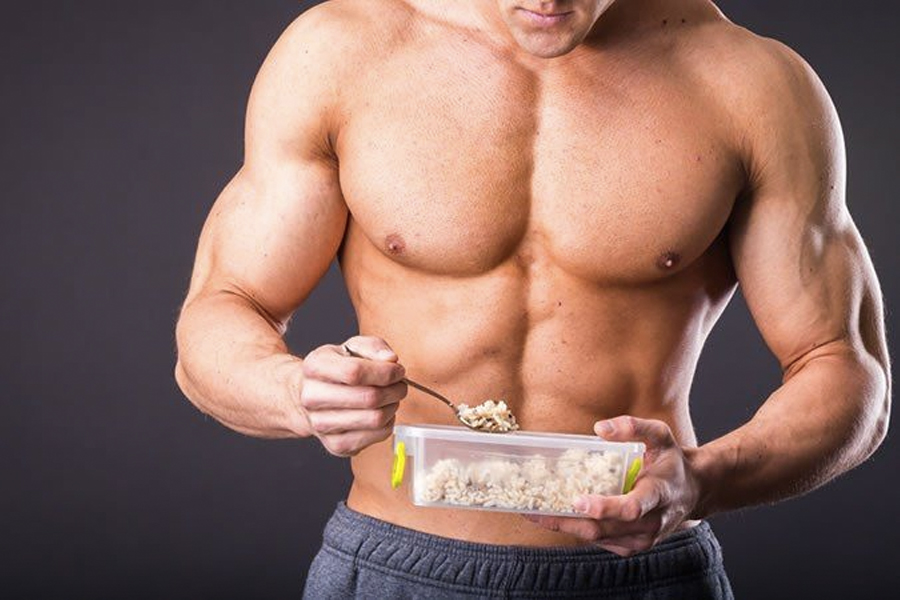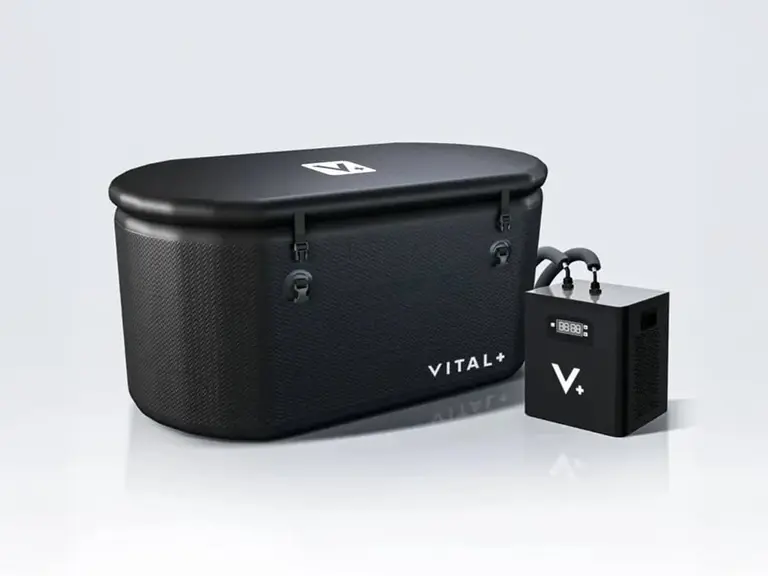
Published:
Readtime: 8 min
Every product is carefully selected by our editors and experts. If you buy from a link, we may earn a commission. Learn more. For more information on how we test products, click here.
Each year, we find ourselves looking for the next big thing in fitness and more often than not, the detox diet rears its head. Cleansing your body of last year’s mistakes sounds like a ripper way to kick off the fresh, new you, but is the process really all it’s cracked up to be? Research into the body cleanse is pretty limited and with so many options to get into, it’s safe to say some are more fitness fiction than fact.
You’ll also like:
13 Best Ways To Burn Fat Fast
10 Best Chest Exercises for Men
Hugh Jackman Wolverine Diet and Workout Plan

What is a Detox Diet?
Detox diets are short term dietary changes designed to de-toxin your body. In other words, a detox diet is an intervention to rid the body of harmful toxins and cleanse your insides.
If you haven’t tried a detox method yourself, the purported benefits are pretty impressive. Detox diets allow the smooth digestion and absorption of nutrients, helping your body to rejuvenate from the inside out by giving it a break from difficult foods. Detox advocates believe that the best detox program can:
- Help to fight off illnesses and boost your immunity
- Give your organs a break from the never-ending job of processing nutrients
- Promote the elimination of toxins from the body and give you a body cleanse
- Improve your circulation
- Give you an energy boost
- Promote fat loss
These are just a few of the alleged benefits of detox diets, so lets break down how to detox your body, the positives and negatives of this dietary intervention, and evaluate whether detoxing could just be the healthy reset button you’ve been looking for.
How to Detox Your Body
Detoxes can range from small dietary changes to drastic, straight up bizarre tactics to cleanse the body (but we’ll get to that in a moment).
A detox diet will typically include one or more of the following interventions:
- Fasting
- Consuming only liquids (juices, tea, water, lemon water, smoothies)
- Eating only fresh fruit and vegetables
- Taking supplements
- Eliminating processed foods
- Avoiding allergenic foods (which can then be slowly reintroduced)
- Using laxatives or colon cleanses
- Eliminating something you rely on like sugars, alcohol, smoking, coffee, etc.
Popular detox diets include juice cleanses, smoothie cleanses, fasting for a period of 1-5 days, and tea cleanses. These cleanses seek to provide the body with easy-to-digest nutrition over a period of days, giving it a break from difficult foods or liquids.

What Toxins Does a Body Cleanse Get Rid Of?
When it comes to detox diets, the word ‘toxin’ is loosely defined. Detox diets rarely identify the actual toxins they remove, instead opting for a holistic approach to removing toxins that may damage your health.
For example, someone may choose to do a detox diet to reaffirm their commitment to working on their health so, in this case, the toxin they’re seeking to eliminate would be unhealthy food choices.
Overall, someone choosing to partake in a cleanse or detox diet is seeking to rid their lifestyle of unhealthy habits or give their body a break from a particular thing.

Do Detox Diets Actually Work?
Short answer… not really.
Based on the studies, there isn’t any evidence they genuinely help to cleanse your body. Of course, cutting out processed foods and unhealthy habits for a period of time will have a beneficial effect on your health, but there’s no confirmed evidence that detox diets actually remove toxins from your body.
In reality, your liver and the excretory system already do an incredible job of removing and neutralising toxins. But, that doesn’t mean a detox isn’t good for your health.
Detox diets help you to hit a restart button on your habits, eliminate processed foods and alcohol, and consume vitamins and minerals you may be lacking. It could also be a placebo effect, but many people also report feeling great while undertaking a detox diet.
Effects on Weight Loss
The jury is out on the effect of detox diets on losing weight. A detox intervention is usually for a period of under a week, which is a short time frame for any substantial weight loss to occur. On top of this, any of the weight loss that does occur could be contributed to fluid loss and depleted carbohydrate stores influenced by periods of fasting.
Once you end your detox, you’ll most likely regain the weight you lost as quickly as you lost it (but it’s only water weight, don’t fret).
In regards to weight loss, I would say this – a detox diet is a great way to kick off a new approach to your health and hit the ‘reset button’, and the habits you learn can transfer into long term positive changes that will enable weight loss.
Detox Diets, Short-Term Fasting, and Stress
Some variations of detox dieting can have similar effects to that of short-term/intermittent fasting. Intermittent fasting has been proven to boost fat-burning hormones and help with certain health factors.
And look, any change in your habits and diet can cause stress, especially if it’s as dramatic as a detox. Fighting temptations and hunger can be difficult, so it’s important to hold yourself accountable and focus on the benefits you’re trying to achieve.
Potential Benefits
While detox diets may not actually de-toxify your body per se, they can still be beneficial to your health. This is because the interventions that detox diets include are similar to that of any healthy dietary change. These benefits include:
- Helping you to lose excess body fat
- Eating more nutritious foods than you may otherwise eat
- Cutting out processed foods
- Drinking more water and healthy drinks like tea and fruit juices.
- Exercising and sweating more regularly
- Limiting stresses (both mentally and dietary)
- Getting better sleep
An added benefit to detox diets is the ability to cut out potential food groups you are allergic to. By cutting out whole food groups, you may experience health improvements from an unknown allergen that you can test when reintroducing foods into your diet.

Safety and Side Effects
As with any drastic diet switch, you should consider the potential side effects and overall safety of the change. Fortunately, detox diets encompass a relatively low risk to your health when done correctly. Potential safety considerations include:
Severe Calorie Restriction
Many of the popular detox diets recommend periods of fasting and greatly reduced calorie intake. This severe calorie restriction can cause fatigue, irritability, and bad breath in the short term, and more serious health implications if continued long term such as vitamin and mineral deficiencies, electrolyte imbalances, and even death.
While fasting techniques (such as intermittent fasting and 2/5) are great for your health and waistline, it is important to accompany these diets with whole, nutritious foods.
Overdosing
While this is rare/impossible for most detoxes, some variants of detoxing do pose the risk of overdosing due to their reliance on supplements, laxatives, and diuretics.
At-Risk Populations
It’s always best to consult a doctor before making a drastic dietary change like a detox or cleanse. Certain people may be more susceptible to adverse health reactions than others and it’s best to check beforehand if you’re one of them.
As a general rule, at-risk populations include children, pregnant women, older people and people with eating disorders or diabetes.
The Summary
At the end of the day, a detox diet probably won’t revolutionise your life. Your body is frequently exposed to toxic substances and for the most part, is incredibly successful at dealing with them.
While the premise of a detox diet or body cleanse might sound appealing on the outside, the lure of a quick fix is hardly a life-changer. For a brief period, you might feel some significant effects that potential could help you with your overall health, but nothing that would suggest a complete overhaul. Instead, simply cutting out alcohol, processed foods and excess sugar will be the more effective ‘detox’ leading into the new year.
You’ll also like:
13 Best Ways To Burn Fat Fast
10 Best Chest Exercises for Men
Hugh Jackman Wolverine Diet and Workout Plan
General FAQs
Detox diets are short term dietary changes designed to de-toxin your body. In other words, a detox diet is an intervention to rid the body of harmful toxins and cleanse your insides.
The best way to do a body cleanse is to cut out processed foods from your diet and replace them with healthy, nutritious whole foods. When combined with regular exercise and good sleep, this will help to cleanse your body.
The potential side effects of a detox diet include fatigue, irritability, nausea, vitamin and mineral deficiencies, vomiting, or in extreme cases death.































Comments
We love hearing from you. or to leave a comment.